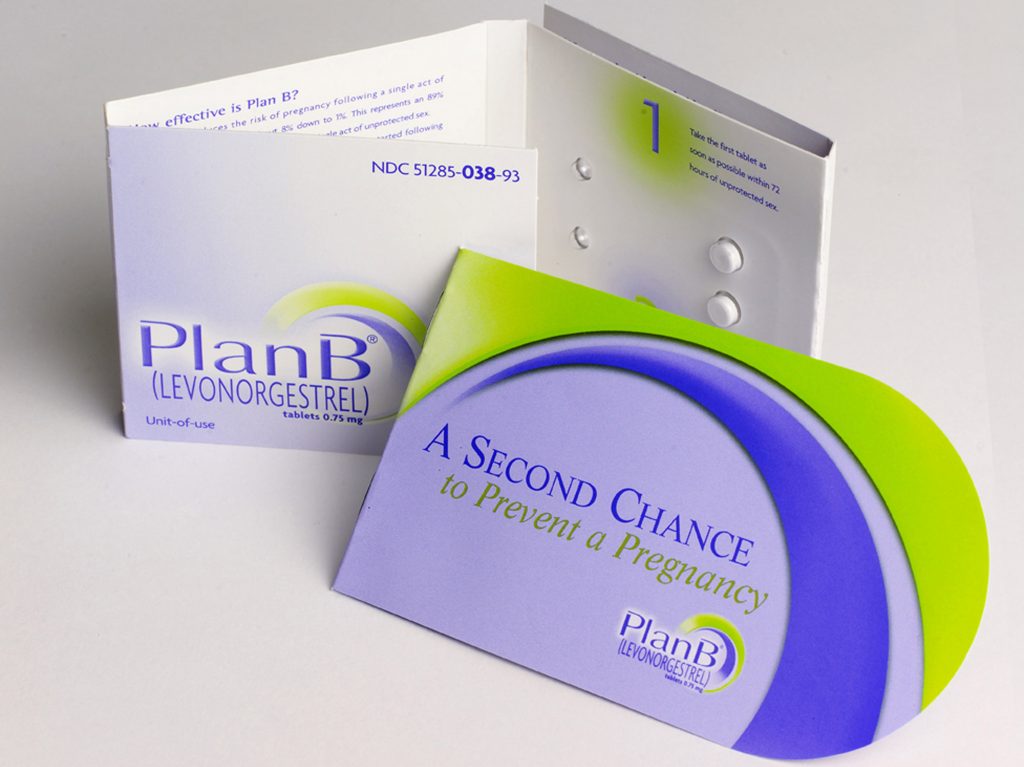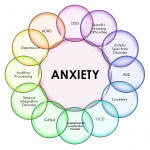
Levonorgestrel is a hormone that is mostly used as an emergency contraceptive. Since it is an emergency contraceptive, you shouldn’t be using it regularly to avoid any health complications.[1]
If you have had unprotected sex, you may prefer taking this emergency contraceptive the next morning immediately. It is for this reason that the pill is also referred to as the “morning-after pill.” However, there is no limit that you will have to wait until the next morning after sex to pop the pull.[2]
Expert doctors suggest that you should take levonorgestrel pretty soon after having unprotected sex. As per the recommended dosage, you should have only one pill. One pill has 1.5 milligrams of levonorgestrel, which is more as compared to birth control pills.[3]
There are several brands selling levonorgestrel pills such as Next Choice One Dose, Preventeza, Econtra EZ, My Way, Plan B One-Step, and Take Action. Immediately, you may take either one pill or maybe given two pills within 72 hours of having unprotected sex.
The pill may prove to be effective in the failure of other birth control methods, such as missing birth control pills and condom breakage. Although it can be effectively used for contraceptive purposes, it does not fall under the category of medicines.
Levonorgestrel is significant only if it is taken immediately, but once the fertilized egg attaches itself to the uterus, the pill may not be effective.[4]
Before using levonorgestrel, you need to consult a doctor if you are under medications for other problems such as tuberculosis, HIV/AIDS, or seizures.
What to know before taking this medicine?
The pill may not be effective if you are pregnant. It won’t terminate a pregnancy that has already started. If you are younger than 17 years of age, you need to avoid taking this medicine.
Also, many people are allergic to this medicine, which is why you need to avoid it.
Certain medicines can react with this emergency contraception and further complicate the problem. Therefore, if you are in any medicine, you need to consult a doctor or health expert to ensure that you can keep this at bay.[5]
As the name suggests, levonorgestrel is an essential form of contraceptive and not something that needs to be used regularly for birth control. There are different birth control medicines available in the market, which is why you need to consult your doctor about it.
Also, levonorgestrel lowers the level of breast milk and reduces production as well. So, if you are breast-feeding, you need to avoid taking this pill to prevent pregnancy.
How does levonorgestrel work?
Levonorgestrel plays a vital role in preventing pregnancy after unprotected sex. How? It delays the ovulation process.
However, it is necessary to note that levonorgestrel is not an abortion pill, which can cause miscarriage or abortion. So, it shows no effect if you are pregnant.[6]
Levonorgestrel works till 72 hours of having unprotected sex. However, there is no evidence that it can terminate the chances of pregnancy completely. Experts have recommended that it can terminate the chances of pregnancy by 87%. But, it is better if you take the pill within 24 hours of unprotected sex to get the best results.[7]
Plan-B doesn’t protect you from the risk of sexually transmitted diseases, so you should be careful with it. Doctors have suggested to use it as a backup and not as a routine medicine. Thus, the name Plan B.
How do I take Levonorgestrel pills?
The levonorgestrel emergency pills need to be taken, as suggested by the doctor.
Levonorgestrel can have certain side effects, such as vomiting. So, if you vomited within 2 hours of taking medicine, you need to ensure that you consult your doctor. Never go for a second dose without consulting the doctor.
Once you have taken the pill, you need to consult your doctor about it. There are chances that the pill didn’t work properly, which is why the doctor would check it thoroughly and declare whether you are pregnant or not. Since the medicine can have certain side-effects, it will help be beneficial if you do your research about it.[8]
If your period is late by one week even after taking the contraceptive pill, the chances are that you are pregnant. So, you might prefer getting a home testing kit to confirm it.
What if I miss or take an extra dose?
Levonorgestrel pills are given as one pill in a packet. So, these are usually for one-time use. There’s no chance of missing a dose, as there is only one.[9]
Also, there is no chance of overdosing since you only get one pill. It is suggested that you shouldn’t take more than one pull at the same time.
Side Effects of Levonorgestrel
You may need to consult a doctor if you are noticing signs of allergy, such as difficulty in breathing, hives, swelling in throat, lips, and face.[10]
Sometimes, you may also experience pain in the lower stomach or abdomen. It can be a sign of tubal pregnancy, which can lead to a medical emergency.
Some of the other side effects include the following.
- Stomach pain
- Feeling nauseous
- Tired feeling
- Changes in menstrual routine
- Nausea, diarrhea, vomiting
- Breast pain
If you are using any such pills, you need to keep it away from the children’s reach. Also, use the medicine as prescribed by the doctor. Before trying any of these pills, consult a doctor or healthcare provider who knows the best.[11]
[1] https://www.ncbi.nlm.nih.gov/books/NBK539737/
[2] Beatty MN, Blumenthal PD. The levonorgestrel-releasing intrauterine system: Safety, efficacy, and patient acceptability. Ther Clin Risk Manag. 2009 Jun;5(3):561-74. [PMC free article] [PubMed]
[3] Kahlenborn C, Peck R, Severs WB. Mechanism of action of levonorgestrel emergency contraception. Linacre Q. 2015 Feb;82(1):18-33. [PMC free article] [PubMed]
[4] Basaraba CN, Westhoff CL, Pike MC, Nandakumar R, Cremers S. Estimating systemic exposure to levonorgestrel from an oral contraceptive. Contraception. 2017 Apr;95(4):398-404. [PMC free article]
[5] https://www.ncbi.nlm.nih.gov/pmc/articles/PMC4313438/
[6] https://www.ncbi.nlm.nih.gov/pmc/articles/PMC4216625/
[7] Shen J, Che Y, Showell E, Chen K, Cheng L. Interventions for emergency contraception. Cochrane Database Syst Rev. 2019 Jan 20;1:CD001324. [PMC free article] [PubMed]
[8] https://www.ncbi.nlm.nih.gov/pmc/articles/PMC3977662/
[9] Back DJ, Orme ML. Pharmacokinetic drug interactions with oral contraceptives. Clin Pharmacokinet. 1990 Jun;18(6):472-84. [PubMed]
[10] https://pubchem.ncbi.nlm.nih.gov/compound/Levonorgestrel
[11] Croxatto H.B.2002. Emergency contraceptive pills: How do they work? IPPF Medical Bulletin 36: 1–2. [Google Scholar]

